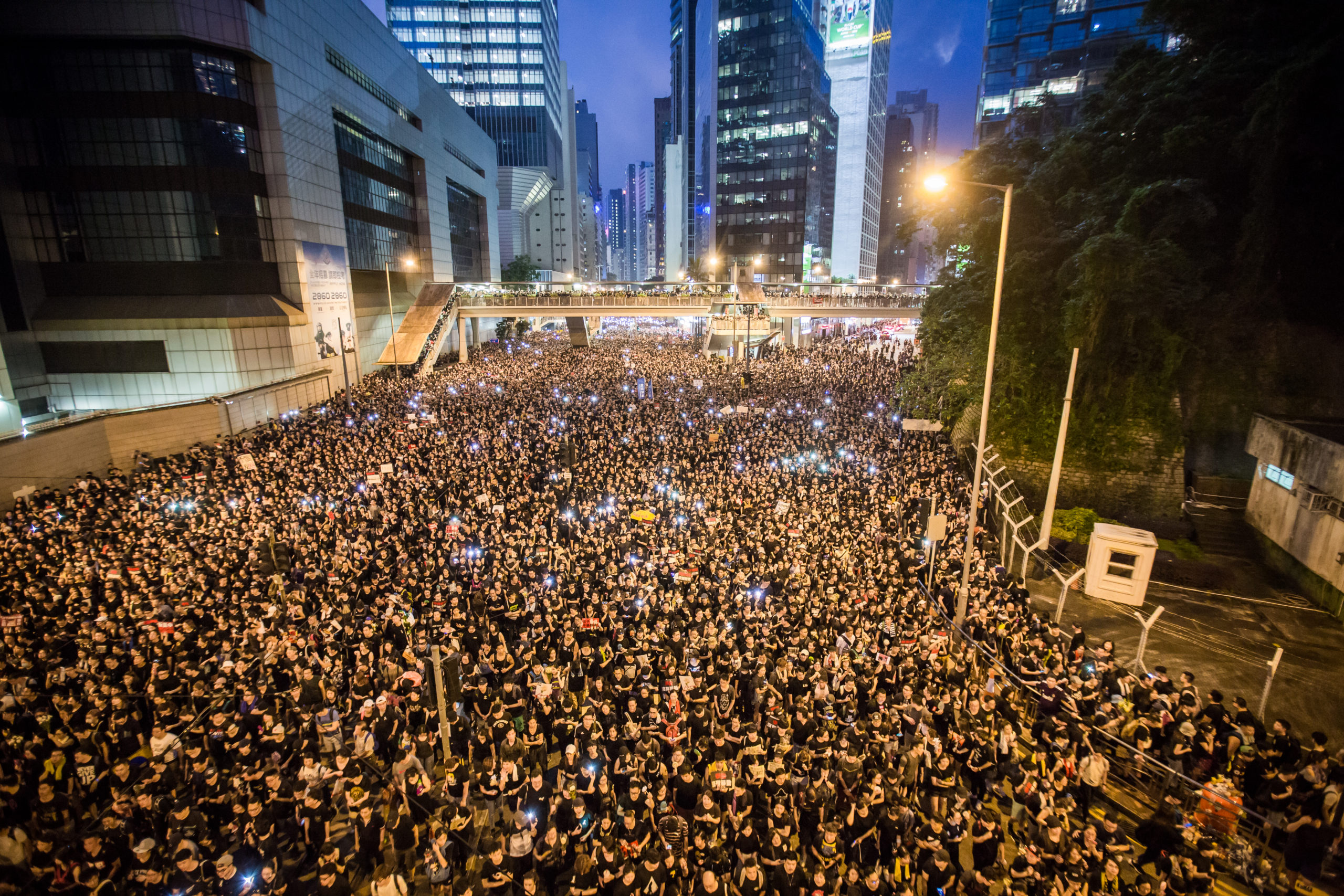DOWNLOAD PDF
THE ISSUE
The past year has seen a seemingly massive surge in protests globally. All around the world we have witnessed a huge wave of people taking to the streets to exercise their right to protest and demand change from those in power. These protests are diverse, multi-faceted, and re-orienting the political, economic and social orders that sustain them – requiring U.S. policy to be equally as innovative and focused on the principles that sustain them.
Peaceful protesting is not a crime, it is a human right. The way governments have by and large chosen to respond to these protests has been disproportionate, unwarranted and a violation of human rights standards.
CORRUPTION
Allegations of government corruption have helped to spark massive waves of protests across Chile, Egypt, Lebanon and Nigeria. In late September thousands of people took part in demonstrations across Egypt. The protests were triggered by a series of viral videos claiming high-level corruption in the military. In Lebanon, one of the overwhelming drivers of the calls for the government’s resignation is allegations of corruption and failure to provide basic economic needs. Similar concerns have been the focus of protests in Nigeria.
COST OF LIVING
Where corruption is a concern so too is the cost of living. In Chile, demonstrations were kicked off by students after they announced a hike in transport fares. Since then the protests have snowballed to cover the vast number of government policies that have placed a burden on the economic rights of ordinary people across Chile. People’s concerns about inequality are underscored by the fact that Chile has one of the worst levels of income inequality.
People’s legitimate concerns over the increasing cost of living have been made worse by the fact that many governments are also imposing harsh economic austerity measures, such as in Egypt and Ecuador.
POLITICAL FREEDOM
This month saw massive demonstrations occurring in Barcelona and the rest of Catalonia after Spain’s Supreme Court sentenced 12 Catalan political leaders and activists. In India protests have erupted following the government’s unilateral decision to revoke Article 370 of the Constitution, amidst a complete communication blackout, curfew on movement and mass detentions of political leaders and activists in Kashmir.
Hong Kong has been home to arguably one of the most sustained protests linked to political freedoms this year. The protests started in April 2019 after the government proposed a bill that would have allowed extraditions to mainland China. People have taken to the streets in record-breaking numbers. While the government eventually dropped plans to introduce the draft law, the protests have evolved into a much wider call for change.
Protests demanding political reform also took place in Algeria, Guinea, Sudan, Zimbabwe, Egypt, and Ethiopia.
A common thread throughout these protests has been the harsh response from governments, which in many instances has involved gross violations of human rights.
TALKING POINTS
- Throughout our history, the right to freedom of assembly is woven through our nation’s fabric, whether through the women’s suffrage movement, the civil rights movement, or the labor movement. And while the USA is far from perfect, we can and must inspire others throughout the world.
- Whether you are fighting against police brutality in Hong Kong or protesting economic inequality in Chile, you have a right to have your voices heard, and a right to protest and demand a better world.
- The U.S. will no long sit on the sidelines – we will support those that yearn for freedom and lean on governments to respect human rights. The world and everyone in it will be better for it.
RECOMMENDATIONS
- The U.S. should host a global forum at the State Department or the United Nations which includes civil society leaders and foreign governments to reaffirm the human rights to freedom of assembly and freedom of association.
- The U.S. should establish a foreign assistance fund that encourages actors that promote peaceful forms of protest and imposes costs for violations of the right to peaceful association and assembly. This package would include funding for documentation of human rights violations during the response to protests.
- The incoming Administration should institute a whole-of-government strategy review of its policy on freedom of association and assembly which establishes a review board to respond as crises break out and to ongoing protests. This should culminate in a high-level Presidential speech that enshrines the U.S. role in promoting and protecting the freedom of association and assembly.
FOR MORE INFORMATION, PLEASE CONTACT:
Joanne Lin
National Director, Advocacy & Government Affairs
(202) 509-8151
